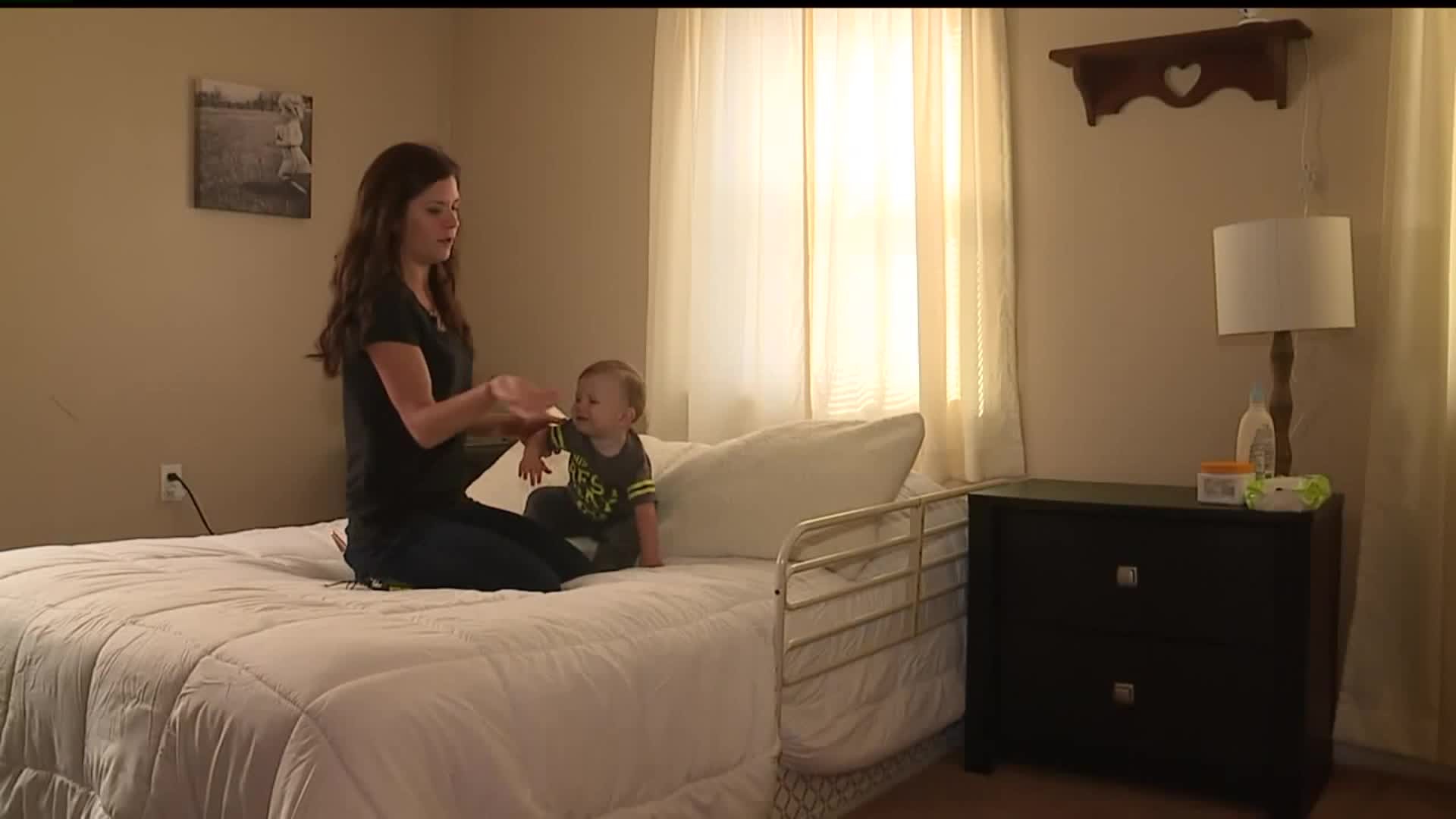WRIGHTSVILLE, Pa. -- Five years and two children later, Jordan Blessing still hasn't told her pediatrician.
Jordan, who lives with her husband, 5-year old daughter Paisley and 1-year old son Bowman in Wrightsville, York County, chooses to co-sleep. Paisley co-slept with Jordan until she was two years old, while Bowman, who is around 15 months old, still does.
"I didn’t know a lot about the topic at the time (Paisley was born) and I was kind of afraid to speak to the pediatrician because I didn’t know what they would say," Blessing admits. "I didn’t want to be shamed."
Co-sleeping is one of the most controversial and taboo topics among new parents. Instead of having their infant sleep separately in a crib, co-sleeping is another way of describing bed sharing, where a child will sleep in the same bed as their parents.
Many mothers say they choose to co-sleep with their babies out of desperation.
"I hate to use this term but it's torture. You bring this beautiful baby into the world and you’re thrust into this sleeplessness," Blessing said.
However, the American Academy of Pediatrics strongly frowns upon co-sleeping. According to a 2014 study which analyzed 8,207 infant deaths, 5,681 deaths, or more than 69%, were attributed to bed sharing.
Mothers who choose to co-sleep, insist there are safe ways to share their beds with their infants. Blessing, for example, keeps her son Bowman away from pillows and blankets, and has a breathable guard rail on the side of the bed. Bowman, she says, always sleeps on the outside.
For many health officials and law enforcement though, any bed sharing simply cannot happen.
"Statistically, you have now increased the risk your child is going to die," said Daupin County Deputy District Attorney Sean McCormack.
McCormack is a member of Dauphin County's 10-person safe sleep task force. It's a group which was formed out of the county's child death review team, and includes law enforcement, nurses, doctors, and child welfare professionals. The group was announced in May 2017, after charges were filed against Arissa Ward, a Middletown mother who police say rolled over onto her son, suffocating him, after she laid down on the couch at their home on the 300 block of Lawrence Street in the borough on Dec. 30, 2016. Ward told police she had been drinking and smoking marijuana earlier that night.
Ward plead no contest to the charges in April, and will be sentenced in June.
Co-sleeping is not illegal. However, the district attorney's office says they are involved because more than prosecuting crimes, they try to prevent future deaths from occurring. The goal, McCormack said, is to promote what he refers to as the 'A-B-C's' of safe sleeping.
"Alone, back, crib," McCormack said. "The child should be sleeping alone, with no bumpers, sleeping on their back, and in a crib. They’re the key three things parents need to do in order to increase child will survive."
The message appears to be getting out. From 2005 until Ward's arrest, there were 31 unsafe sleep related deaths in Dauphin County. Since December 30, 2016 though, there have only been two.
Susan Brackbill, a nurse with UPMC Pinnacle who leads the hospital's nurse-family partnership, says despite increased knowledge about co-sleeping, Pinnacle only recommends the "Back to Sleep" safe sleeping methods as first outlined by the American Academy of Pediatrics in the 1990s, and since updated.
"It's still a choice and sometimes what happens is, inadvertently and accidentally, it becomes a habit," Brackbill said. "Once that habit is established, it's harder to break. So, we promote right up front, sleep your baby this way, and that's all they know."
For some parents, co-sleeping is a financial issue, and not having the means to purchase a crib. Brackbill says UPMC Pinnacle offers a program called "Cribs For Kids," which makes free "Pack n' Play" style cribs available to low-income families.
However, with time comes an evolution with how moms are educating themselves on co-sleeping. Even the AAP, in its most recently updated guidelines in 2016, admits that co-sleeping does occur, and in cases involving nursing children in the middle, offers safe ways to do it, by eliminating pillows, sheets, blankets, and any other items which could cause a baby to stop breathing or overheat.
If
Jordan Blessing hopes the AAP will eventually come around to offering safe ways to co-sleep in more ways than just nursing. She has no issue talking about her decision to co-sleep with her two children, despite her admission she's never told her pediatrician.
"If it works for you and your sanity, figure out how to do it safely and do what you gotta do," she said.

